A municipality that learns itself and is already teaching others
The story of how the U-LEAD with Europe Programme not only gave the municipality a “fishing rod”, but also showed how to use it correctly.
Text by: Mykhailo Bublyk, Ukrinform
The reform of local self-government is one of the most successful in Ukraine. Naturally, it has not been uniformly fruitful, but where the newly created municipalities have managed to creatively use the opportunities that opened up, there are noticeable successes. This was especially evident after the beginning of the large-scale Russian invasion. One of the examples is the Mahdalynivka rural municipality of the Dnipropetrovsk region. Here, among other things, local creativity was successfully combined with the advice of NGOs, primarily the U-LEAD with Europe Programme, which systematically works on municipality development.

Gardens of Victory
The Mahdalynivka municipality has often been able to implement its own projects even with no external financial support, as in the case of the local Administrative Service Centre.
“They created the Administrative Service Centre following our consultations, but with their own funds — not even with donor funds,” says Olena Tertyshna, Head of the Regional Office of the U-LEAD with Europe in the Dnipropetrovsk oblast. “However, we provided support at their every step. We accompanied them. They had no idea how to do it, so they turned to us. We took them down that path, and now they have a state-of-the-art Administrative Service Centre. We have been inviting them to our training.”
According to Olena Tertyshna, in addition to seeking solutions to its immediate challenges, the municipality actively learns new things and expands its horizons.

“At the moment, there is a clear issue of safety environment in municipalities, especially in schools. They completed all the courses we offered them, and now they pass the knowledge to other municipalities. They built a bomb shelter, again with their own funds, although following our training. They have completed the first one according to our recommendations, and they are already starting the work on the second one. The third one is in the plans, and they are teaching other municipalities on top of that. As they say, we give municipalities fishing rods rather than fish.
We invited them to food safety training. They completed the course, participated in our seminars and acted as speakers. According to our recommendations, the head of the rural municipality, Volodymyr Drobitka, has already developed a very good municipal food security programme, the Gardens of Victory. Under the programme, 15 hectares were allocated to grow zucchinis, cabbages, carrots, tomatoes, cucumbers and peas. That is, here he also followed our advice.”

Olena Tertyshna emphasises that this was not a business. In the Gardens, everything is done by the volunteer efforts of its employees. Both IDPs and employees are happy to work in these fields. The head of the municipality engaged agricultural producers in the municipality. They provide him with tractors, cultivate municipal fields, prepare them for sowing and sow, while weeding is done by the municipal workers. U-LEAD urges every municipality to stock on food. In Mahdalynivka, these stocks are being prepared for the second year in a row. All municipal institutions such as healthcare facilities and kindergartens provide food, and the military is fully supplied with food, as the municipality’s schools are focused on canning and preserving food that is then handed over to those units in the Armed Forces that applied for it every week.
The head of the Regional Office of U-LEAD with Europe in the Dnipropetrovsk oblast cites the following example.

“There was a request for social entrepreneurship in the municipality. The volunteer movement is well-established here, and we also invited them to our training on how to unite volunteers so that they are not on their own but so that the authorities see them and support them. Mr Drobitka liked the idea of introducing social entrepreneurship. We referred them to Dyvna Ukraine NGO, and now they work together.”
School for IDPs
The Mahdalynivka municipality was established in 2019, and preparations for unification began even earlier. That is, all decentralisation processes here were voluntary and went according to their own plans, including those developed with the support of U-LEAD experts. Perhaps the most important is the Budget Stabilisation Plan, which helps to cope with challenges and balance the financial system in wartime.
“Two-thirds of the former Mahdalynivka district were united,” said Volodymyr Drobitko, Head of the Mahdalynivka District. “And if other municipalities needed to develop a management system, our task was to preserve it. Because all district services remained in the village. Everything was aimed at preserving the administrative buildings to the greatest extent, managing them correctly, attracting businesses there and maybe starting other services — that is, bringing money to the budget, developing the municipality and creating new centres.”
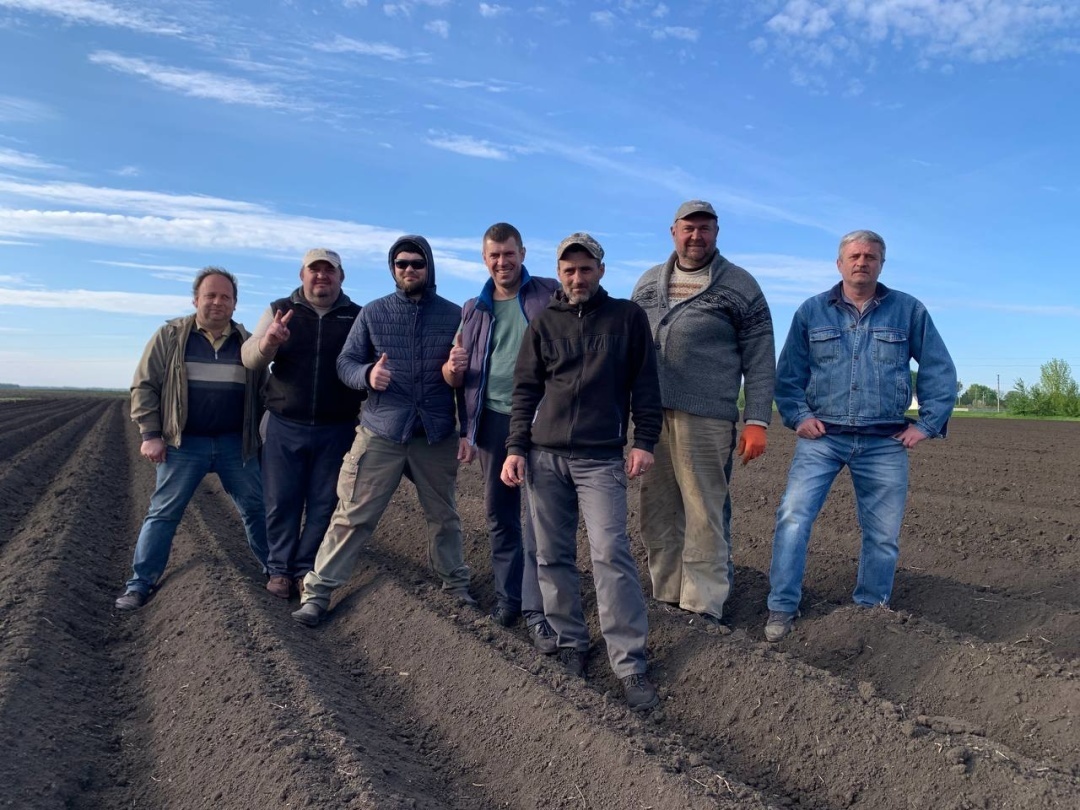
Today, the primary task that the municipality aims to solve is to sort out the municipal economy. Following U-LEAD experts’ advice, the municipality opened a volunteer centre to strengthen support to both its population and the military and implemented the above food security programme that helps both internally displaced persons and military personnel on rotation.
“Our employees are there for them at any time of the day or night if someone needs food or something else. We are always open and always ready to help. Our top priority is to help the Armed Forces.”
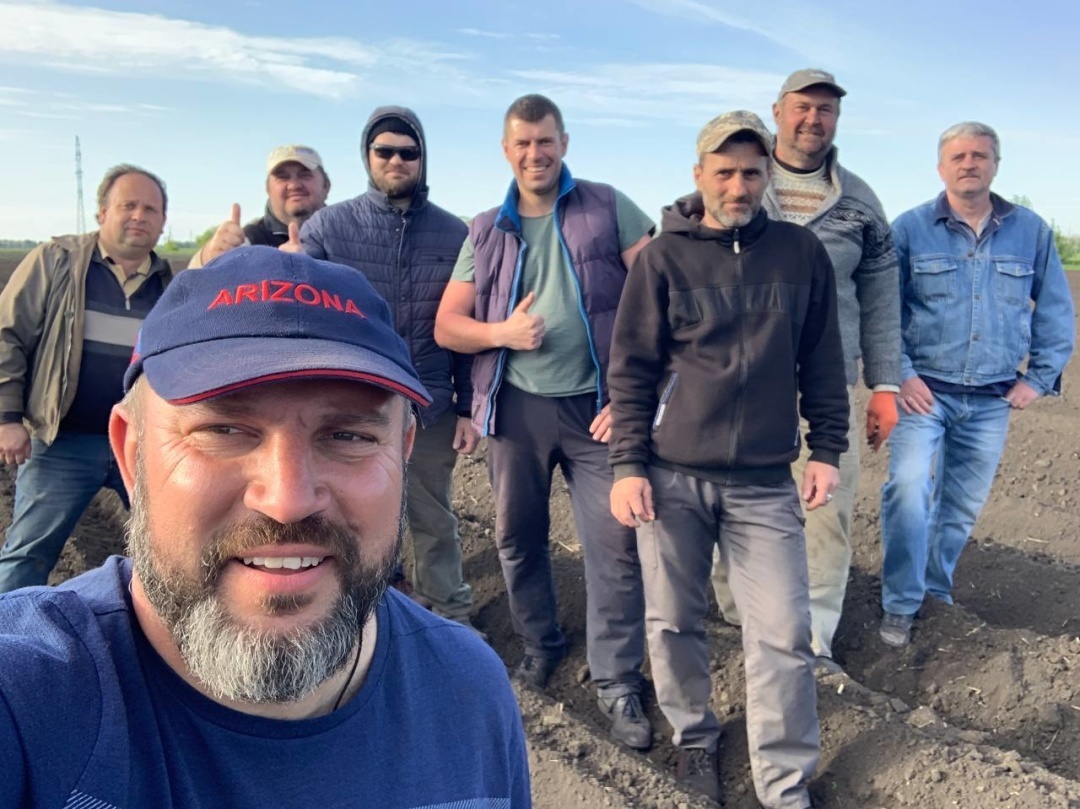
“By the way, regarding IDPs...”
“More than 4,000 IDPs passed through us. Today, the municipality hosts 825 persons. There is a site accommodating 67 persons. Until recently, there were 100, but people are slowly going back home, to the Kharkiv oblast, to the Kherson oblast... Fortunately, they are able to do it now. In order to help people survive a difficult situation, for those who stay with us, whether in private housing or at the site we arranged for IDPs, we work with various funds such as the Red Cross, the Pinchuk Foundation, People in Need and a number of others. People living at the IDP site on the territory of the former hospital stay in the furnished premises for free. Utilities are covered by the municipality; repairs were also made partly at the expense of the municipality, while everything else was covered by the above funds.
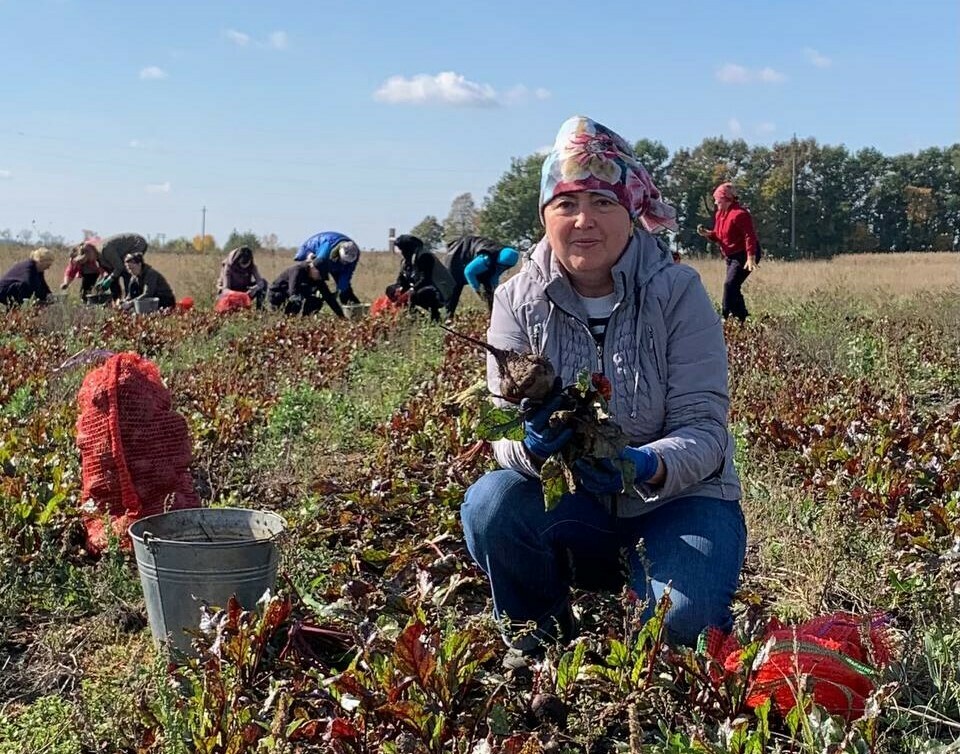
“Hopefully, the IDPs are not just sitting around?”
“We have tried to assimilate them. We now have people from the Donetsk and Luhansk regions, they came from small towns such as Popasna and Mariinka. These are mostly people with urban jobs: some worked as miners, some as engineers. Our municipality is mainly agricultural, and the IDPs should readjust to work in agribusiness. We began to involve IDPs in the Gardens of Victory, and they started to gain work experience in harvesting crops and caring for plants. As early as in the autumn, they got these jobs with full awareness, understanding the work schedule and their future duties, especially with vegetable producers to harvest potatoes, onions, cabbage.”
Buses of Hope
Compared to other municipalities — such as the ones in the Poltava oblast — there are not too many IDPs in Mahdalynivka. It is located on the Left Bank of the Dnipropetrovsk oblast, right next to the Kharkiv oblast and the Donbas region, so people from these territories tried not to stay here for long last spring. For example, in the Nekhvoroshcha municipality of the Poltava oblast, IDPs make up 10% of the population, while the same number in Mahdalynivka is less than 4% (the total population of the municipality, excluding new arrivals, is 21,000). Incidentally, Mr Drobitko knows his Nekhvoroshcha counterpart, Viktor Dubovych, and maintains partnership and personal ties with him.
Today, those who are willing and able — obviously, excluding old people and disabled people — able-bodied people work in our agribusinesses. Whether as seasonal or as permanent employment, it gave them a chance to get a job and bring additional income for their families.
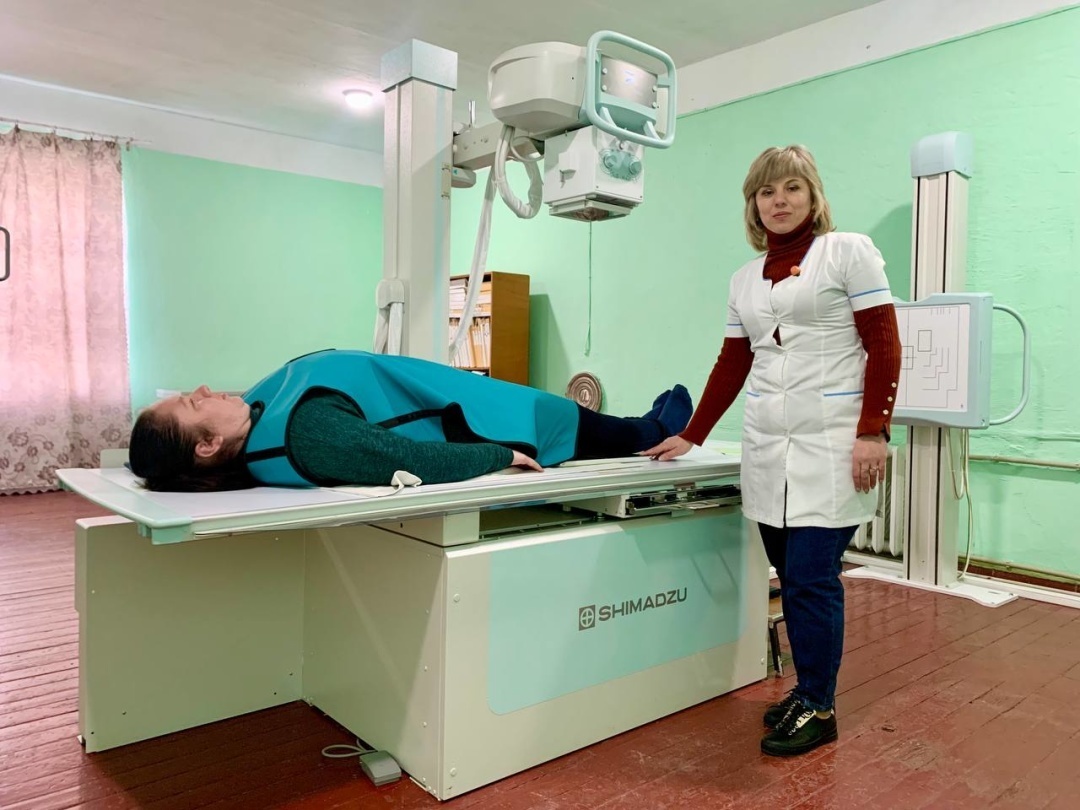
“Are there any people who have found themselves in your municipality? Doctors, teachers...”
“There are. A young endocrinologist from Kharkiv is currently working in our hospital. He will stay here. Nurses also work here. Some female IDPs also work here as ordinary sanitary nurses.
Today, the municipality is campaigning for all children of internally displaced persons to study in schools offline. In the previous academic year, which passed in the summer, 54% of the students in the municipality were already studying offline part-time in schools equipped with bomb shelters.
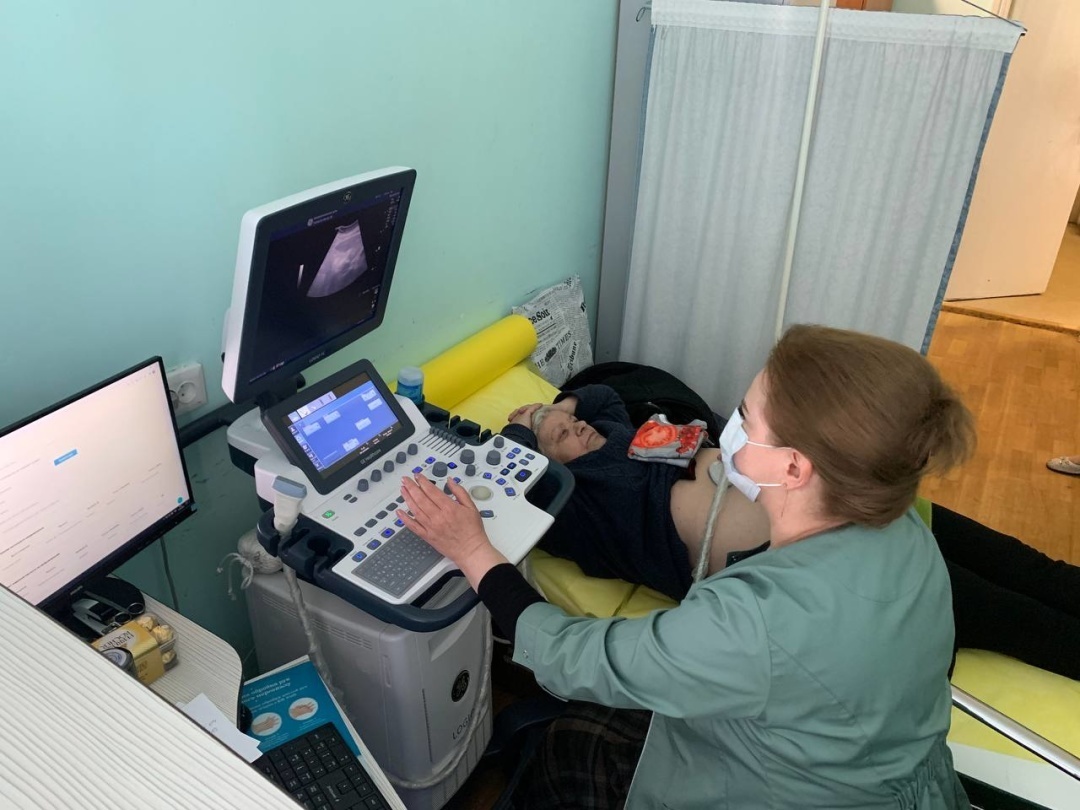
“We are currently investing in civil defence: simple bomb shelters, dual-purpose shelters and anti-radiation shelters. Just so that from September 1 on, all educational institutions can work face-to-face, children will be able to study and parents will rest assured that their children are safe, teachers and educators in kindergartens will be able to ensure a comprehensive educational process. After all, the two ‘covid’ years and the second year of the war are affecting both the university enrolment campaign and, in general, the upbringing of children. Both healthcare and education need more attention. As for healthcare, personnel management is lacking, and we will have to work a lot on improving the infrastructure. And as for education, this is working directly with our pupils. These are the issues that our municipality currently prioritises.
It would seem that this should be at the bottom of the list during the war, but Mahdalynivka focuses a lot on the social sector. Today, there are a number of projects, where the Dnipropetrovsk oblast is at the forefront, such as Veteran and similar NGOs. The Mahdalynivka municipality directly participates in these projects. To provide examples, Tetiana Katsai, Head of the Economic Department of the Mahdalynivka Village Council, shared some data.
The are 36 settlements in the municipality. The distance from the villages to the administrative capital of the municipality ranges from 10 to 20 km, and there is one settlement, Tarasivka, located 30 km away, that has a population of 33. Long before the reform, transportation services fell on private individuals in the regional capital city. And who will set up a bus line to the Tarasivka if it promises only substantial losses to the owner? So Mahdalynivka found its own way.
“We launched the Social Bus Programme,” said Ms Katsai. “And today it is used by all benefit-entitled categories of people. During the war, the number of disabled people increased as well. We try to drive them to the municipality’s capital to get better services, including healthcare and administrative services, as those who lack the latter on the ground can visit the central Administrative Service Centre, the Pension Fund, etc. Although we have remote workplaces of the Administrative Service Centre in basically every starosta district. By the way, we are currently purchasing new vehicles for this project to make it more inclusive. We understand that the soldiers return injured, and some have mobility problems. To make social transport more convenient for them, it should be equipped accordingly. All residents of our municipality should receive high-quality passenger transportation services.
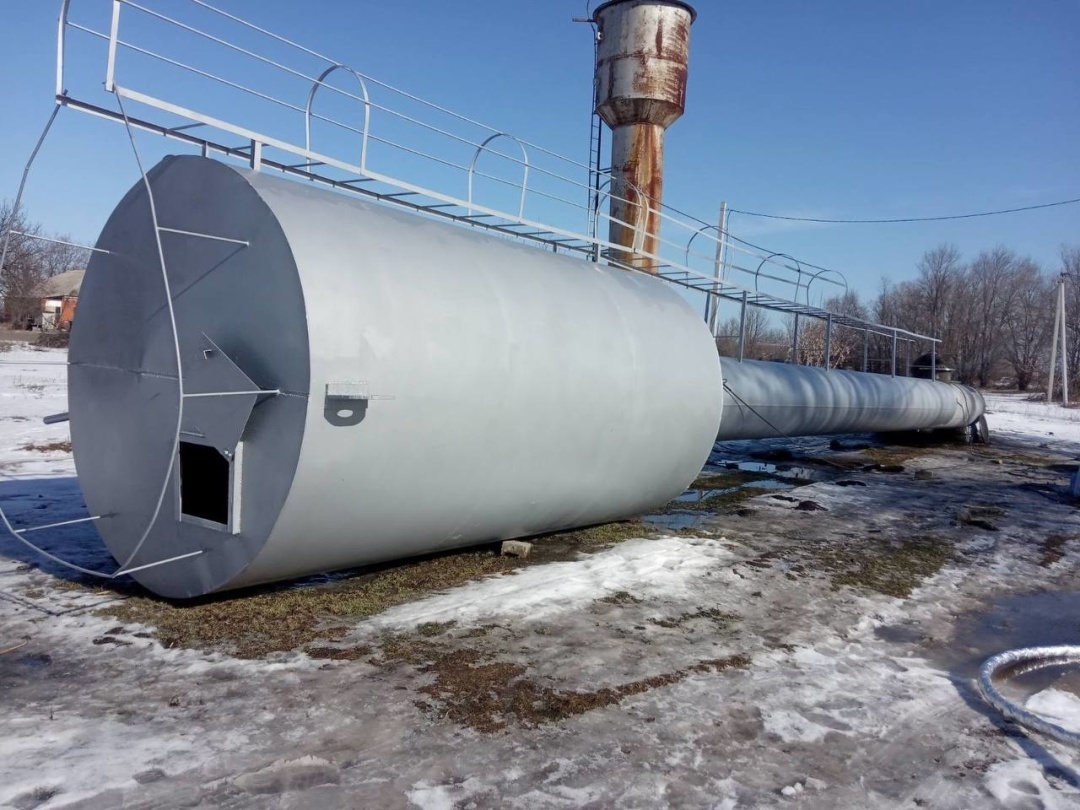
Strategic forecasting
During the years of independence, the municipality greatly transformed its housing and municipal services. First and foremost, its water supply.
“Our municipality hardly has the same problems as the southern parts of the Dnipropetrovsk oblast do, those that were connected to the Kakhovka Reservoir and where today entire cities and districts are left without water,” said Ms Katsai. “Still, the water level in our reservoirs decreases every year, and old equipment, old highways, old water towers need to be replaced as well. We suffered great losses from worn pipes and towers, and today we are working in this direction.”
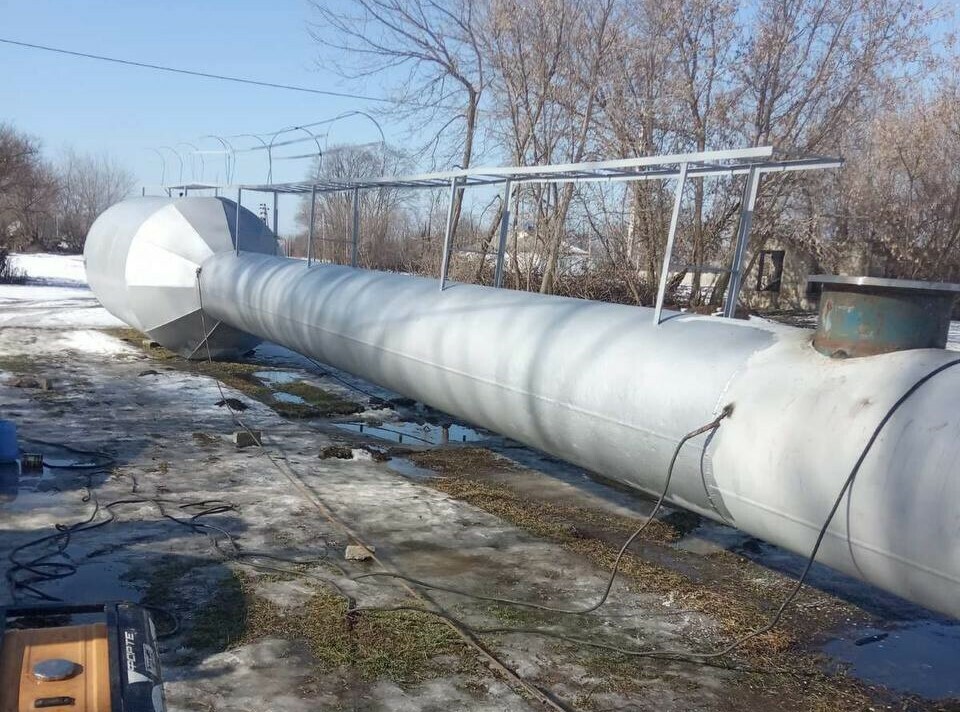
She presented a considerable list of works that have already been completed, as well as several facilities where design and construction documentation has been developed. Without listing everything here, the main achievement is that the new equipment is already delivering water via new pipes to the homes of 4,489 consumers of Mahdalynivka and other villages of the municipality.
Other utility companies are working just as successfully. As do municipal institutions that promote Ukrainian culture (there are too many festival awards to list, and there is also a victory in a music competition held in Vienna!), but the photos received from the municipality seem especially noteworthy. After reviewing them, I had some more questions for the head of the municipality and received an answer that was very curious from the perspective of... the history of the creation of the Mahdalynivka municipality.
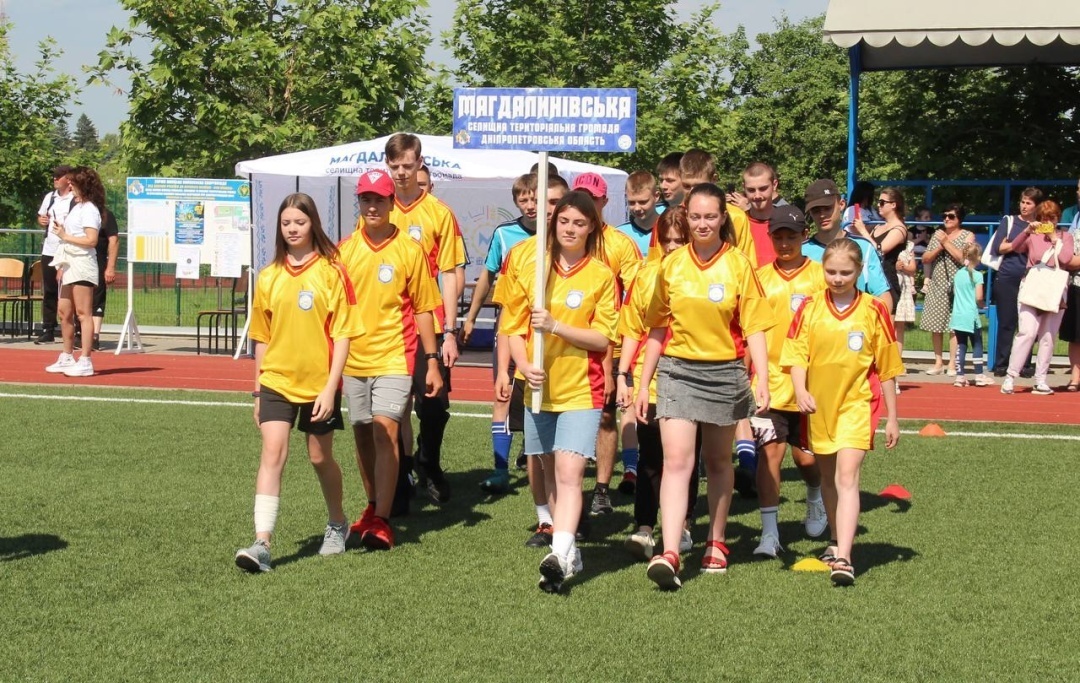
“I saw many photos featuring you are among athletes. Do you participate in sports competitions yourself?
“Indeed, I do. We have a volleyball team in the All-Ukrainian Association of Municipalities; we are representing the Dnipropetrovsk oblast there. No, we do not, say, play darts, as it is not a sport. But in game sports, I have always been a part of the team. We lead those around us by example. We have a great football pitch with natural turf (there is also an artificial turf pitch near the school), a top-notch football pitch that is, dare I say it, the best in Ukraine, because it was made for us by the business community, large agriproducers. Even Ukrainian First League teams played on it. The pitch is ranked highly by the professionals, and all the teams from different regions who participate in these championships try to come to us to play on proper turf, enjoying the game.
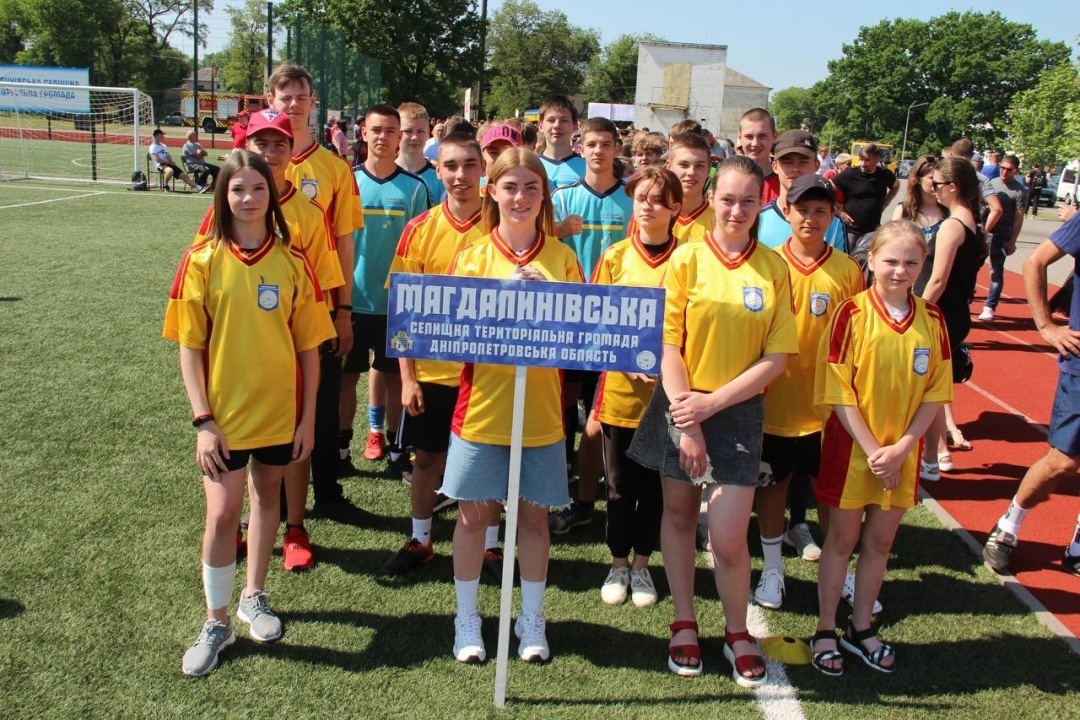
“Did you build the stadium after the municipality had been created?”
“No. We simply understood the spirit of the reform. I used to head the district council since 15 December 2015, and when the decentralisation processes began, we immediately got to work with an understanding that the future still lies in the unification of village councils. As the district council, we began to invest the funds that came from the largest taxpayers to the district budget both in infrastructural and educational facilities. Thus we — yet to be united — had already made these calls: Look, once we unite, you will see the results, as the funds you pay to the district budget circle back to you. And those funds that you will have access to — what will you be able to do with them? With this, we set an example for those village councils that used to be in the red. Because many businesses avoided paying taxes, ‘minimised’ them, so to speak. This is how we created competition between village councils, and today we have some projects implemented that clearly showcase which village councils are in the lead, and which ones have had a taste of this and are trying to level the field, competing within our municipality... There are many projects that we implemented even before the unification,” said Volodymyr Drobitko, head of the Mahdalynivka village.
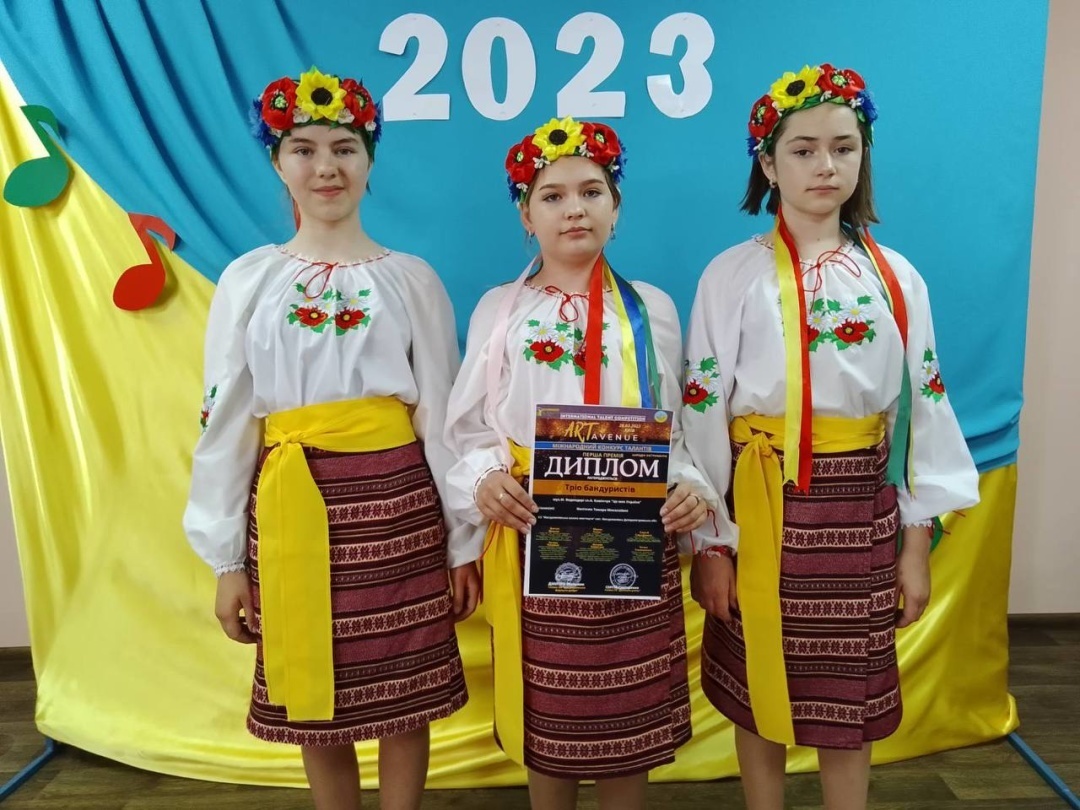
“The Mahdalynivka Development Policy was created with the assistance of U-LEAD, and all the progress after this guides them like a compass,” Olena Tertyshna emphasised at the end of our conversation. “Targets have been set. We helped them to develop a brand book as part of the policy.
The Mahdalynivka municipality is a case of the training at our events helping to choose a direction, go through it and produce results. A great example of how, through training, you can start using your own resources effectively by teaming up with others. They had a problem with housing and municipal services, specifically water supply. We probed this topic in neighbouring oblasts, and the municipality no longer looked for partners like a needle in a haystack but rather knocked at specific doors. And now they have created a very efficient utility company. These are examples of cooperation.
Our local budgets are currently underfunded by thirty to forty percent. Not everyone can boast of fully meeting their targets. The oblasts where businesses have relocated have larger budgets, including Poltava, because it is further in the rear. And our oblast became a southern shield against the invaders. Everything is done to drive them away. In our oblasts, they stood on the border with the Kherson region, near Zelenodolsk. What people have survived is terrible. We have villages 30 kilometres from the front line... But we live on!
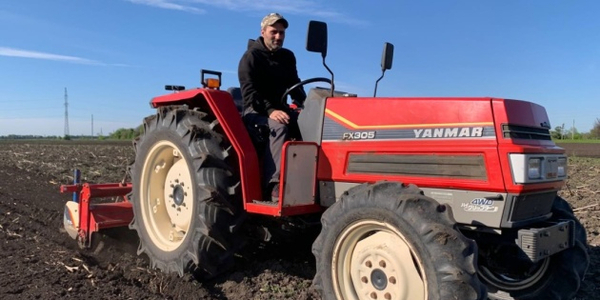
Tags:
Область:
Дніпропетровська областьГромади:
Магдалинівська територіальна громадаSource:
Укрінформ
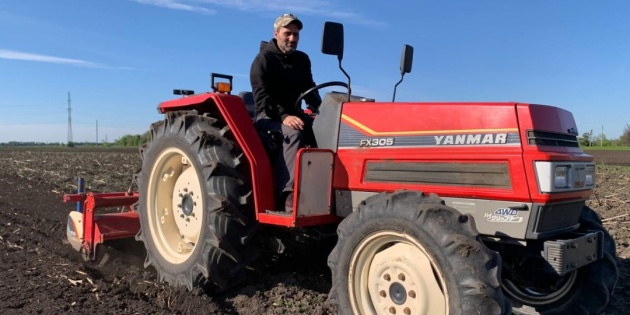
04 March 2026
Львівська агломерація і Метрополія Ґетеборгу (Швеція) заклали основу для довгострокового партнерства
Львівська агломерація і Метрополія Ґетеборгу...
Перспектива розвитку метрополій, які у нас більш звично називати агломераціями, останнім часом привертає до себе все...
04 March 2026
Кращі практики на старті: як Центри...
Старт нових сервісів психосоціальної підтримки в умовах війни завжди є викликом. Обмежені ресурси, інфраструктурні...
04 March 2026
Helvetas проводить відбір ТГ Харківської області для забезпечення мешканців житлом
Helvetas проводить відбір ТГ Харківської...
В межах проєкту «Horizon Homes: сталий модульний житловий проєкт в Україні», що впроваджується швейцарською...
04 March 2026
Снігурівська МВА підписала першу угоду про партнерство з данським муніципалітетом Гентофте
Снігурівська МВА підписала першу угоду про...
Снігурівська міська територіальна громада розпочинає новий етап міжнародної співпраці. Начальник Снігурівської...